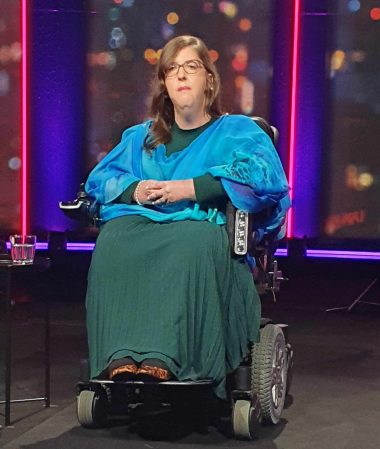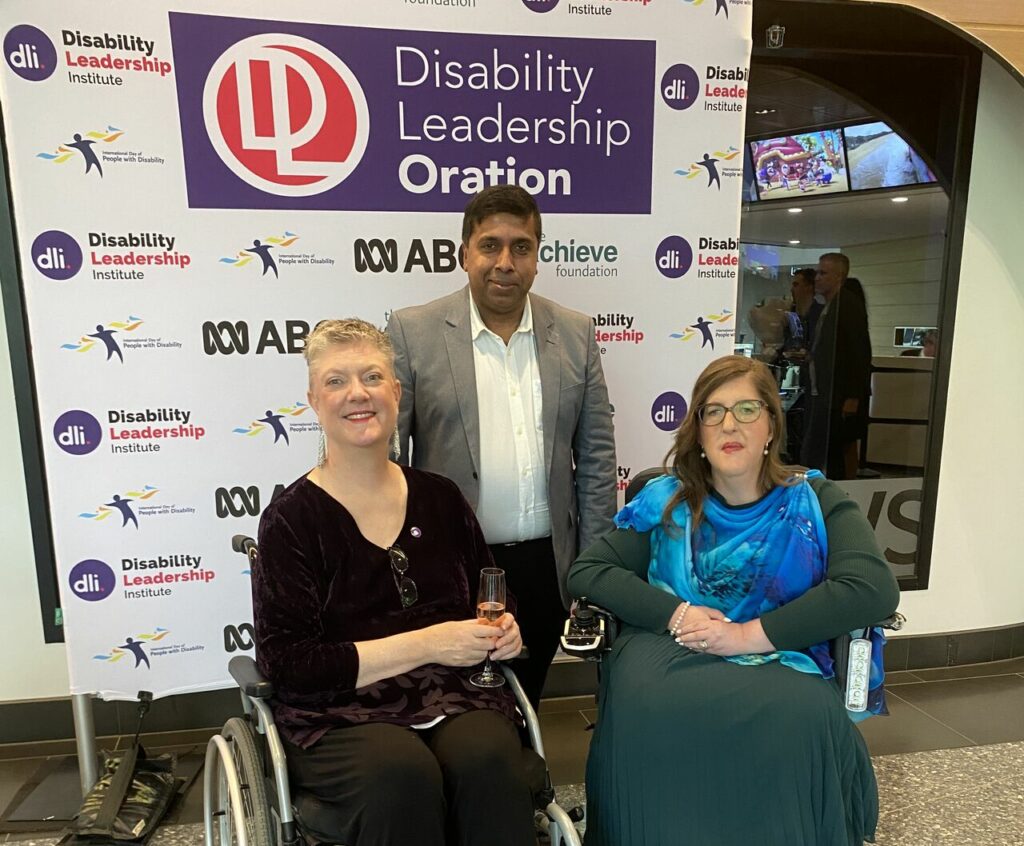Creating space for and amplifying disabled voices through disabled leadership is imperative to advancing a diverse Australia.
To mark International Day for People with Disability, for the first time in history, the Disability Leadership Institute in collaboration with the ABC and the Achieve Foundation, launched the Disability Leadership Oration. I was named the inaugural Orator, but more on that later, because to appreciate the importance of the Oration, you need to know the state of play for disability leadership in this nation, including the embodying organisation, DLI.
As Christina Ryan, CEO and founder of DLI, who is at the forefront of developing, nurturing and championing disability leadership, explains:
“The DLI is a tiny social enterprise. We are completely funded by membership and training fees, with a bit of consulting work on the side. We are all disabled people and focus on getting on with disability leadership. We are the only specialist disability leadership development organisation in Australia, and one of only a few in the world. We don’t have a day-to-day relationship with government.
“Disability Leadership is not a priority of any government in Australia, except for the work that’s been done here in Victoria over the last few years. It is only mentioned once, in passing, in the National Strategy, and has no KPIs to make it happen.

“There are some weird assumptions about disability leadership: apparently disability leaders are only interested in disability-related work, all things to do with disability are government-funded, and disability equals charity. These assumptions are all incorrect and undermine disability equality and they must change.”
About a year ago, the Oration was an idea in Christina’s mind and fast forward to now, it has become a national event that creates an important platform to hear from disabled leaders. It opens a direct line of communication with Australia on issues that affect us, disabled people.

On the day, Christina explained that the Oration is a testament to disability leadership:
“We don’t have formal government support or funding, or policy, so disability leaders across Australia have simply got on with making disability leadership happen on our own terms, in the way that we think is most effective.
“We’ve built professional networks and developed training and support that our disability community wants. There is still a very long way to go, we have barely started, but we have started, and we aren’t going away now.”
Following on from almost 20 years in systemic disability advocacy, a lifetime of experience as a proud disabled woman and a sturdy career in human rights law, I was appointed the inaugural Orator with a brief to “set the national agenda”. My Oration is focused on ending the segregation of disabled people in all settings but especially housing through disabled leadership.
In the Oration, I explained that to phase out intergenerational segregation from settings like education, employment and housing we need to be led by people who have experienced it. I called for the investment in and adoption of disability leadership including by having disabled people on your boards, in decision-making roles but also as key consultants to the decision-making process. I hope it is a timely reminder for everyone to ensure their organisation or space of influence is championing disabled leaders.
The Oration is a key turning point in our nation’s conversation on disability leadership, cementing us as a respected, integral voice within the diversity of Australia.
You can watch the inaugural Disability Leadership Oration on ABC’s Iview.
Natalie Wade is the Founder and Principal Lawyer Director of Equality Lawyers, a disability-led, disability rights law firm providing premium legal services to the disability community. In 2021, Natalie authored Disability Rights in Real Life, a practical handbook for disabled people, their families and allies on everyday disability rights law. Natalie holds several senior advisory roles including on the Australian Disability Strategy Advisory Council and the Premier’s Council for Women.
